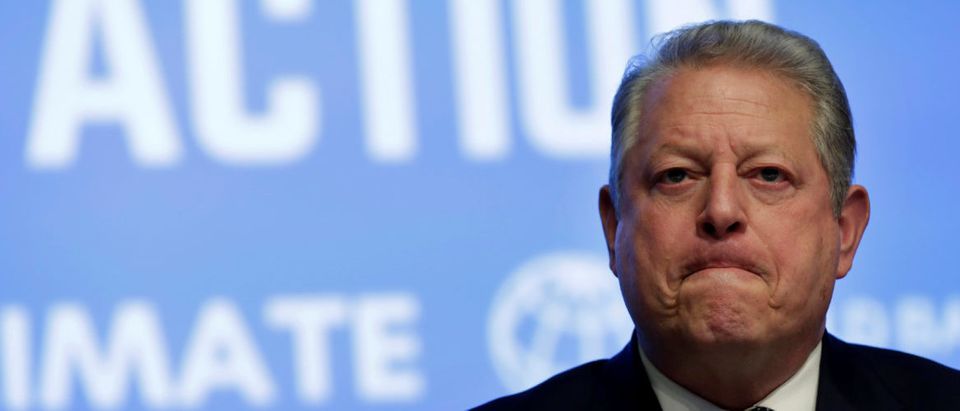While United Nations delegates wrap up this year’s climate summit, observers and experts have been coming to terms with an extremely inconvenient implication of meeting the goal of the Paris climate accord.
Meeting the accord’s goal of keeping global temperature rise below 2 degrees Celsius by 2100 requires technology, and the UN is essentially asking countries to literally suck carbon dioxide and other greenhouse gases out of the atmosphere.
The Economist editorial board explains: “The Paris agreement assumes, in effect, that the world will find ways to suck CO2 out of the air” since “emissions cannot be cut fast enough to keep the total stock of greenhouse gases sufficiently small to limit the rise in temperature successfully.”
So, if you take the UN’s Paris accord projections seriously — and there are good reasons not to — just spending trillions of dollars more on green energy and energy efficiency isn’t enough. Paris accord proponents have tended to downplay this aspect of their global warming goal.
U.S. lawmakers recently heard testimony from geo-engineering proponents who agree with the UN that sucking carbon dioxide out of the atmosphere is necessary. The November hearing focused on carbon-sucking technology and stratospheric aerosol injection — literally shooting up particles into the high atmosphere to block sunlight.
Douglas MacMartin of Cornell University told lawmakers that sucking CO2 out of the air “is the only way to achieve net‐negative emissions,” which included “direct air capture” of carbon dioxide. MacMartin also mentioned carbon capture and storage (CCS) technology, which removes greenhouse gas from fossil fuels when burned for electricity.
President Donald Trump in June pledged to withdraw from the Paris accord, but the administration has said it’s still committed to promoting CCS, natural gas and other forms of energy to lower emissions.
Energy Secretary Rick Perry signed a pledge to promote CCS with International Energy Agency chief Fatih Birol. Perry and Birol agreed to “support a renewed push for investment in carbon capture, utilization and storage (CCUS) as an essential part of a clean energy future.”
The U.S. has spent lavishly on CCS technologies, but only one CCS coal project, the Petra Nova plant, is up and running. The Kemper coal plant in Mississippi has a CCS system, but has opted to not use it and burn natural gas instead.
The European Union spent nearly $700 million over the last decade to build carbon capture and storage facilities — none of them were built because officials weren’t able to predict cap-and-trade pricing, news reports found.
There are 17 projects capturing carbon dioxide from fossil fuel combustion and storing it underground. But even if the world were to miraculously scale-up CCS technology, it would be extremely expensive.
A recent report by former World Bank adviser Gordon Hughes found “the economic analysis of CCS suggests that it is a technology that is both too late and too expensive in its current form.”
However, those who want to meet the Paris accord goals also suggest sucking carbon dioxide right out of the air. Sounds feasible, but The Economist brought up good points about why this technology may not work out.
“Direct air capture and enhanced weathering use less land, but both are costlier,” the editorial board wrote. “Though renewable energy could profitably generate a fair share of the world’s electricity, nobody knows how to get rich simply by removing greenhouse gases.”
In essence, you’d need a system of subsidies, carbon tax or cap-and-trade system to get businesses to suck enough carbon dioxide out of the atmosphere to make it economical.
Higher energy prices aside, the next question becomes, where do you store it? And, is it safe to store carbon dioxide underground for long periods of time? How would all this be regulated?
Then there’s the biggest question of them all: At what level do we keep atmospheric concentrations of CO2?
These are all questions Paris accord proponents have to answer.
Follow Michael on Facebook and Twitter
All content created by the Daily Caller News Foundation, an independent and nonpartisan newswire service, is available without charge to any legitimate news publisher that can provide a large audience. All republished articles must include our logo, our reporter’s byline and their DCNF affiliation. For any questions about our guidelines or partnering with us, please contact licensing@dailycallernewsfoundation.org.


